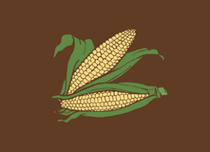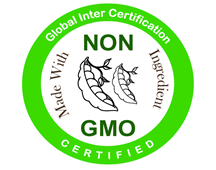Food Certification Trend_Non-GMO
페이지 정보

본문
Non-GMO Food Certification Trend
‘Genetically Modified Organism (GMO)’ refers to agricultural products that artificially separate or recombine genes so that it has intentional properties. Foods and feed that using that including GMOs or raw materials derived from GMOs are referred to as "Genetically modified foods" and "Genetically modified feed," respectively.
In general, varieties have been improved using GM technology to strengthen immunity and increase productivity of crops such as beans, corn, and potatoes. Because of this, for genetically modified foods that modified through this, it has traits or genes that cannot appear through conventional breeding methods.
Non-GMO, on the other hand, is a non-genetically modified food that has not been genetically manipulated by not using any GMO, ensuring transparency through the indication of Non-GMO products, and ensuring consumers' free choice.
 <The negative aspects of GMO food>
<The negative aspects of GMO food>
[ The negative aspects of GMO food ]
- By artificially developing pest-resistant crops, there is a concern about ecosystem disturbance caused by pests corresponding to it.
- If GMO crops become common, native species can be endangered, and species diversity can also be reduced.
- Artificial genetic modifications can produce harmful substances, causing allergies and worsening the immune system.
 <Non-GMO foods Market - Growth and trends>
<Non-GMO foods Market - Growth and trends>
[ Non-GMO foods Market - Growth and trends ]
The global non-GMO food market size is expected to reach USD 2.76 billion by 2025 registering a CAGR of 16.5%, according to a new report by Grand View Research, Inc.1)
Cereals & grains was the dominant segment and accounted for over 34.0% of the global market share in 2018. Developments in meat and poultry industry are expected to augment the industry growth over the forecast period. The market is expected to highlight a decent growth because of surge in demand for easy-to-eat foods, leading to a rapid growth in the manufacturing sector.
North America holds highest share in 2021. However, Asia Pacific is growing at the highest CAGR over 2021- 2026.2)
 <The importance of Non-GMO food certification>
<The importance of Non-GMO food certification>
[ The importance of Non-GMO food certification ]
With the recent spread of organic, eco-friendly, and well-being cultures, more and more companies are offering foods that have not been genetically modified. A number of studies have been published emphasizing the risk about consuming genetically modified foods, increasing interest in Non-GMO certification.
Also, as consumers' living standards increase, the demand for information on food has also gradually higher and as "Food stability" emerges, interest in Non-GMO foods is increasing among consumers.3)
As much as some countries of the European Union (EU) completely prohibit the use of GMO foods, GMO foods are considered harmful to the human body. While, Non-GMO foods are considered eco-friendly, so they are perceived favorably among consumers such as vegetarians.4)
So, in order to target highlighting the stability of their products while targeting consumers' psychology to purchase foods good for health, many food companies have recently obtained Non-GMO certification and are manufacturing foods using non-genetic modified raw materials.5)
According to the International Food Information Council (IFIC) Foundation’s 2018 Food and Health Survey, 40% of consumers view products that contain non-G.M.O. ingredients as healthier than identical products made with G.M.O. ingredients.6)
Meanwhile, food company officials answered that Non-GMO certification helps sales rise of their products and boost corporate image and distributor buyers also responded more positively to products that have acquired Non-GMO certification than other products.
There is a restriction in tracking GMO foods and difficulties in obtaining data on the safety of GMO food, such as negative effects that human health and safety. Therefore, food industry experts said that consumers that looking for Non-GMO foods are increasing, sales of Non-GMO foods and the number of companies that want to acquire certification will also increase sustainably.
 <Popular Non-GMO foods>
<Popular Non-GMO foods>
[ Popular Non-GMO foods ]
Soybean, Corn, Canola, Cotton, Sugar beet, Alfalfa that Gene is not modified
[ GIC Food Product Certification, "Non-GMO" ]
The size of the Non-GMO market continues to grow, and the demand for Non-GMO food is also increasing.
Non-GMO certification can be an important and sure means of proving whether it is Non-GMO foods or GMO foods to consumers. And consumers can check the Non-GMO mark attached to the product and purchase it by select.
 <Non-GMO Mark>
<Non-GMO Mark>
GIC provides its own Non-GMO certification based on its knowledge that has been accumulated for many years about Food Safety Management Systems such as ISO 22000 and FSSC 22000.
[ Reference ]
1) Grand View Research
https://www.grandviewresearch.com/press-release/global-non-gmo-food-market
2) Mordor Intelligence
https://www.mordorintelligence.com/industry-reports/non-gmo-foods-market
3) Kim Hyeji_2019, 「Customer's global motives and behavioral intentions toward non-GMO foods」, Yonsei University
https://scienceon.kisti.re.kr/srch/selectPORSrchArticle.do?cn=DIKO0015011178&dbt=DIKO
4) "The Joongang', accessed Mar 16th. 2022
https://m.post.naver.com/viewer/postView.nhn?volumeNo=21217777&memberNo=11166748&vType=VERTICAL
5) "The Food & Beverage News", accessed Mar 16th. 2022
https://www.thinkfood.co.kr/news/articleView.html?idxno=65065
6) "Mordor Intelligence", accessed Mar 16th. 2022
https://www.mordorintelligence.com/industry-reports/non-gmo-foods-market
- 이전글IAF News_The results of IAF/ILAC/ISO survey on ‘Remote Techniques’, and related policies 22.03.28
- 다음글2022 Certification Trend_ESG 22.03.04
댓글목록
등록된 댓글이 없습니다.

 한국어
한국어

